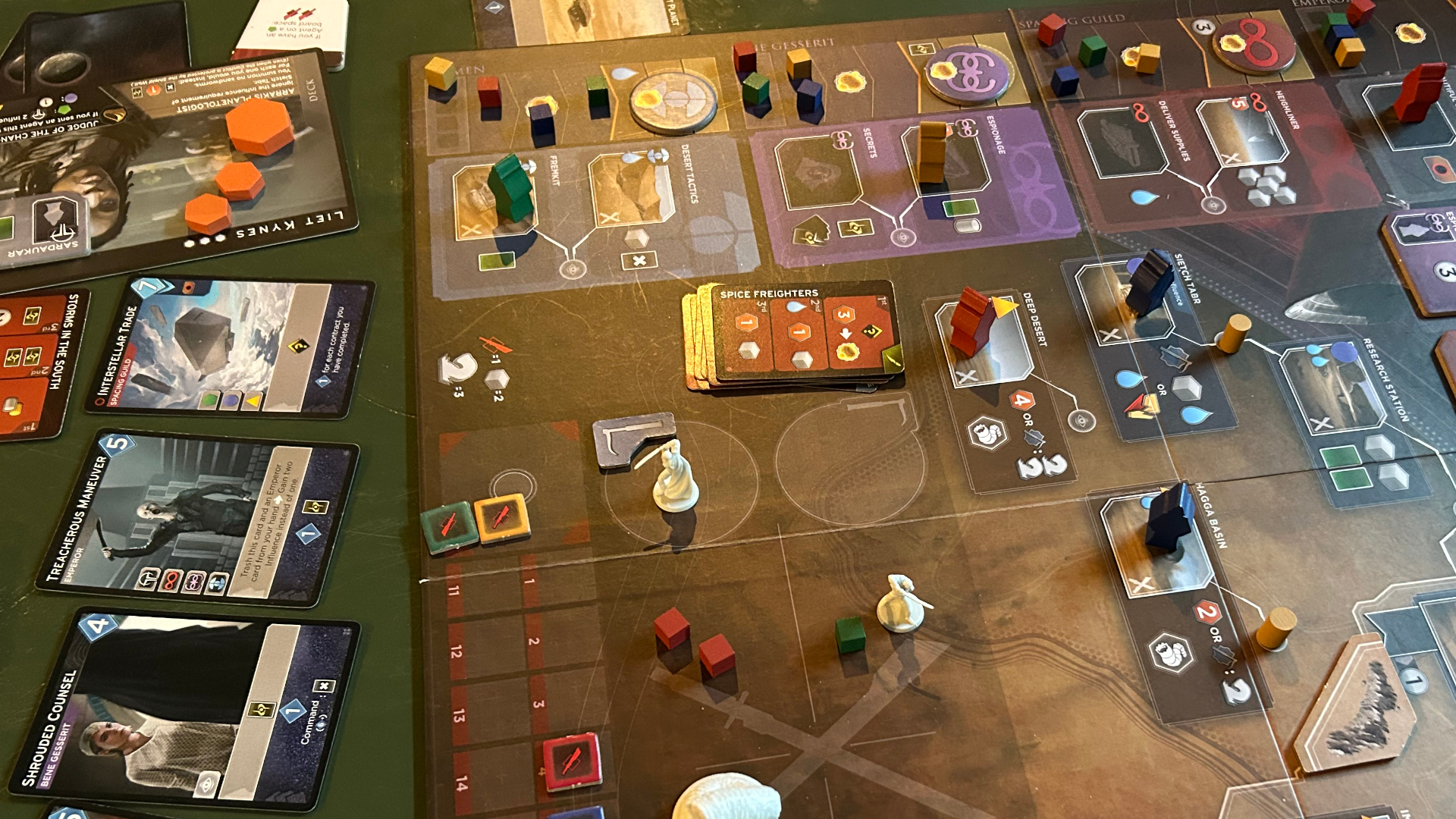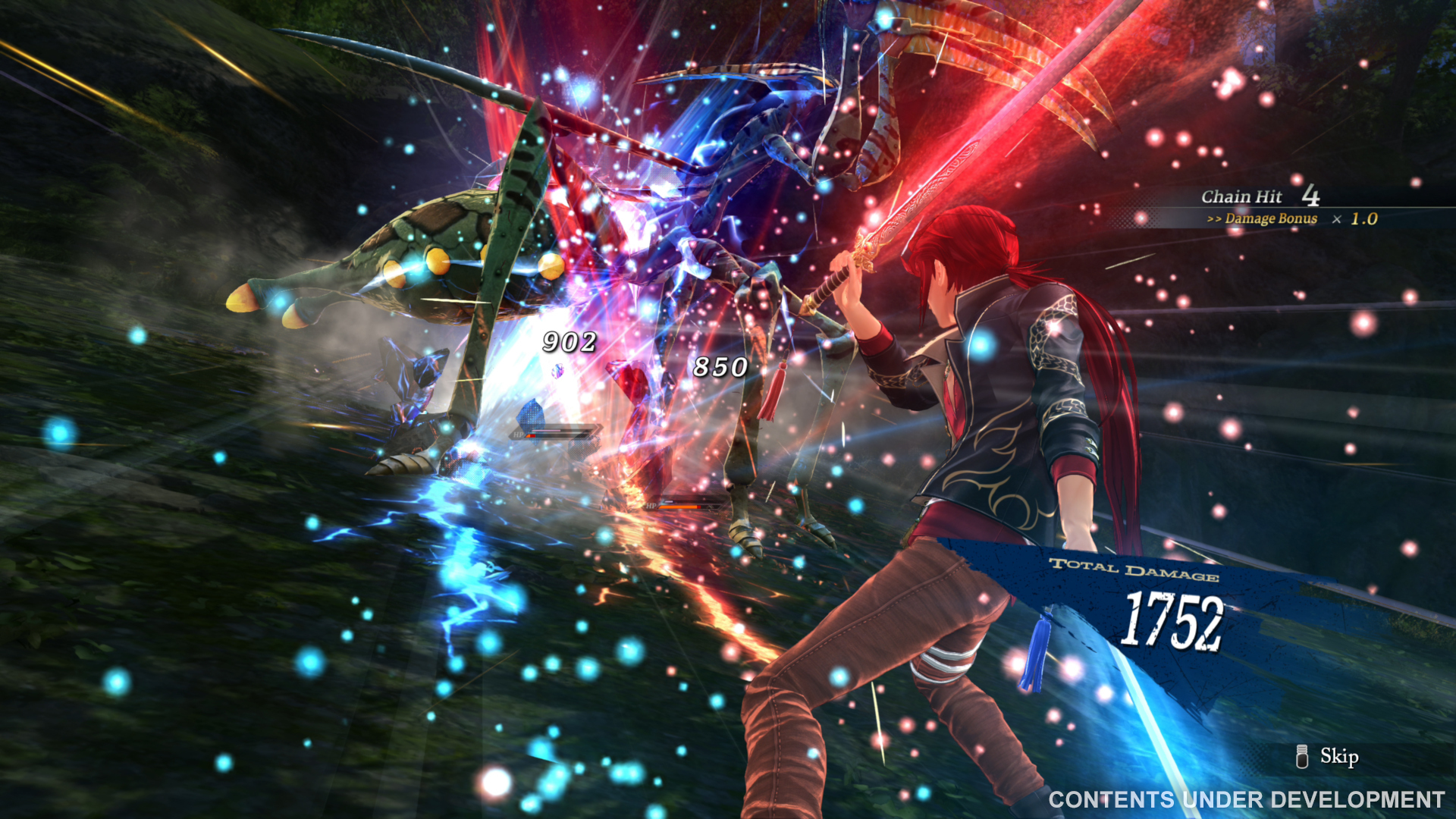GamesRadar+ Verdict
Dune: Imperium – Bloodlines makes an excellent game even better by expanding the types of strategies players can use without adding too much complexity. New leaders broaden what is possible, adding new areas, decks and complex tactics, while a new type of spy removes the problem of players locking down board spaces. Anyone who enjoys Dune: Imperium should add this expansion to their collection.
Pros
- +
Reshuffles the game’s strategies thanks to new mechanics and leaders
- +
Improves on the spy mechanic introduced in Uprising to make the game more dynamic
- +
Rules are very clearly written and cover most edge cases
- +
Replaces Rise of Ix, bringing back technology in a way more compatible with Uprising
Cons
- -
Takes up more tablespace than the base game
- -
Some leaders are very complicated and require specific Imperium Row cards to work well
Why you can trust GamesRadar+
Frank Herbert’s Dune is a science fiction masterpiece, but the sequels are more of a mixed bag, becoming increasingly weird and convoluted. Fortunately Dune: Imperium is following a different trajectory, with expansions continuing to refine the experience into one of the absolute best board games out there. Just as Dune: Imperium – Uprising was a major improvement on Paul Dennen’s original game, Dune: Imperium – Bloodlines addresses the biggest issues with the standalone expansion to make strategies even more dynamic and further increase replayability.
A replacement for the popular Dune: Imperium – Rise of Ix expansion, Bloodlines bolsters some of the weaker spaces on the board and in turn reduces the dominance of the sandworms unleashed by Uprising. Players who prefer aggressive strategies will find new opportunities by hiring Sarduakar commanders with powers that can change the course of battles or give you resources just for fighting. Those who focus on accumulating Persuasion needed to get the most expensive cards will find fresh rewards from a new Command mechanic that provides benefits for players who accumulate six or more in a round.
You can also largely ignore some of these new mechanics and still play with strategies and leaders you mastered in previous games of Uprising. Or you can just engage a bit, opportunistically picking up a key technology or placing a deep cover spy to ensure access to a board space you want to go to. The result is that Bloodlines adds plenty more depth for those seeking to test new leaders and tactics without requiring mastery of too many more concepts for less experienced players.
Dune: Imperium - Bloodlines features & design
Price | $40 / £32 |
Ages | 12+ |
Game type | Worker placement / strategy |
Players | 1 - 4 (6 with Uprising) |
Lasts | From 1hr |
Complexity | Moderate |
Designers | Paul Dennen, Phil Amylon, Andy Clautice, Caleb Vance |
Publisher | Dire Wolf Digital |
Play if you enjoy | Dune: Imperium, Expeditions, Apiary, worker placement games |
- Bolster your army with Sarduakar commanders
- Spend spice on technologies that will help you throughout the game
- Try out new leaders with very different abilities
Bloodlines brings back the concept of technology from Rise of Ix, tiles that can be purchased with spice for powerful effects you can enjoy throughout the game – like having the signet ring in a player’s base deck provide access to any space on the board or providing extra protection against having your intrigue cards stolen. While there is a small Ixian embassy area that indicates which of these tiles are available to purchase, Bloodlines doesn’t actually replace or change any of the existing spaces on the board. Instead, any time you go to a green space you can buy a technology in addition to its regular effect.
While Rise of Ix spiced up combat with dreadnoughts, which returned after most battles, Bloodlines introduces Sarduakar commanders. Impressive plastic miniatures representing the Emperor’s elite troops are scattered around board places rarely visited in the early game, setting off a race to recruit them by going there and spending extra Solari. Beyond being troops that can be hired into any conflict, Sarduakar also come with special tiles representing abilities that trigger when they’re fighting. At the most basic level, this increases the force their players bring to bear, but they can also fundamentally reshape strategy by rewarding players with extra troops, spice, or Persuasion.
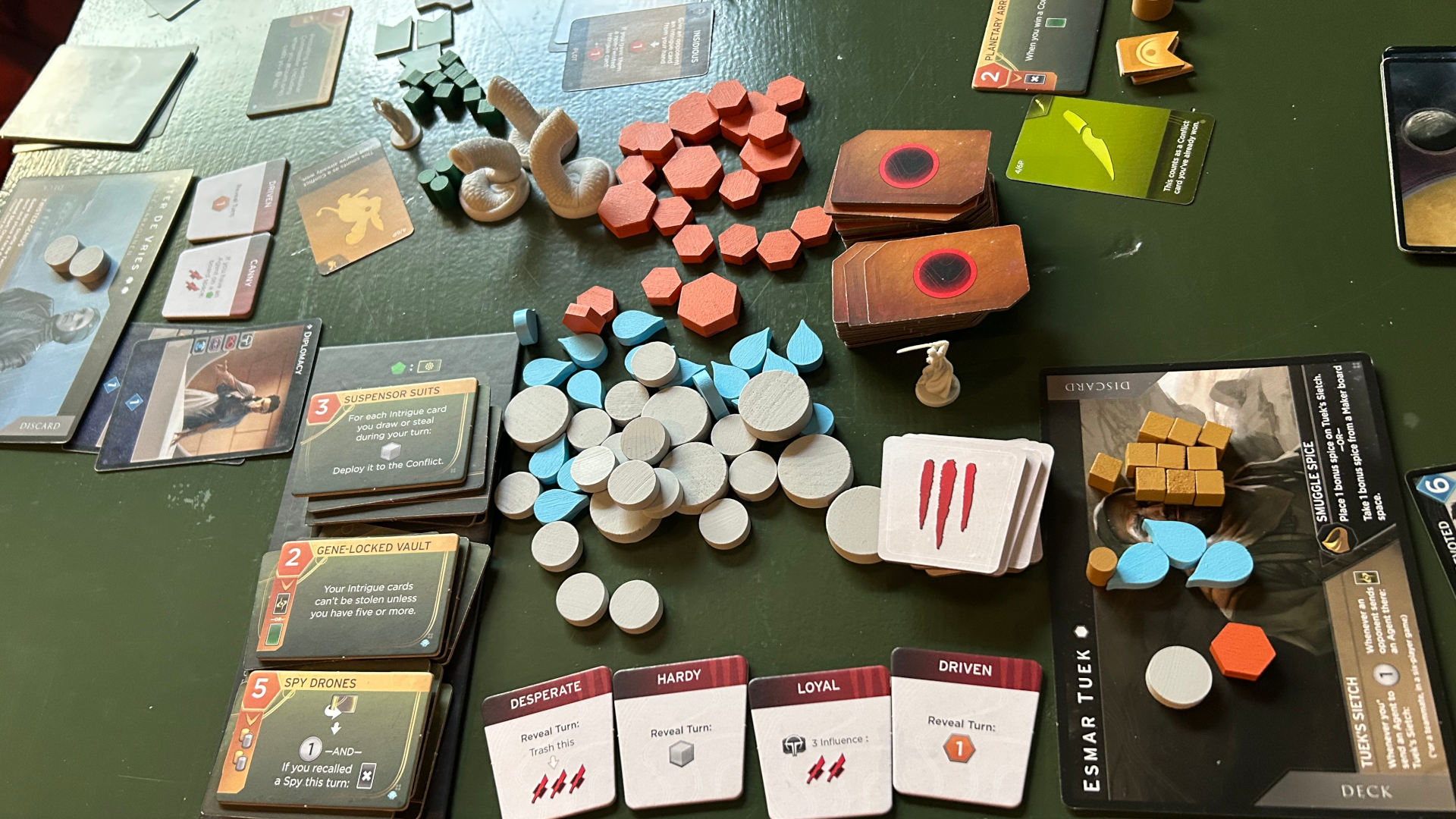
The two new sets of tiles take up more space on the table, so plan accordingly. Beyond that, the other new features are more subtle but can still have a dramatic impact on winning strategies. Spies were one of the best elements introduced in Uprising, breaking the typical rules of a worker placement game by allowing players to visit spaces they’re spying on even if another player was already there. But since the spaces for spies are limited, the board could still get locked down if multiple players were deploying them. Deep cover spies change that by ignoring opponent spies when placed, making the game even more dynamic.
Bloodlines also resurrects a mechanic from the Immortality expansion that makes it easier to deploy troops into the conflict, with some cards and technologies allowing players to treat any spot on the board as a combat space. This tends to make fights bigger as players have additional opportunities to add troops, and it also makes them more unpredictable since conflicts can be bolstered even if all the combat spaces on the board are full.
Weekly digests, tales from the communities you love, and more
The expansion doesn’t just reward aggressive strategies, offering new perks for players who focus on building up Persuasion to purchase the most expensive cards in the Imperium row and the endgame point card The Spice Must Flow. Players who get their High Council seat receive a discount on buying technology as well as cards from the Imperium row, making the investment even more valuable. A new Command mechanic offers kickers if you reveal six or more Persuasion in a turn, which can be huge benefits like more troops or Solari.
Gameplay
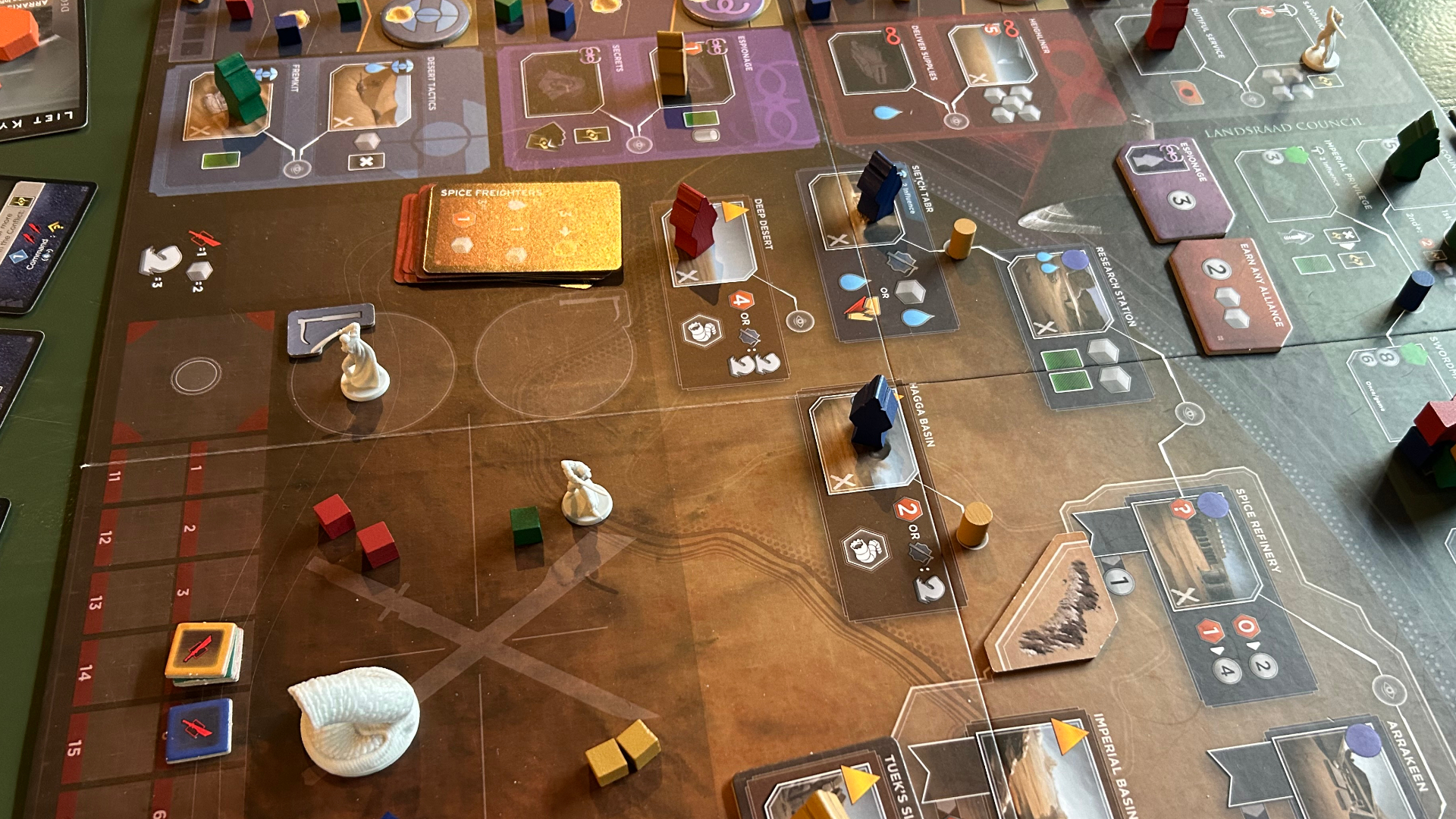
- Sandworms are no longer the dominant strategy
- Spend your resources carefully
- Make the most of the cards available as you sculpt your deck
Dune: Imperium – Uprising had gotten a bit predictable for competitive players, who mostly raced to be the first to improve their Fremen reputation enough to start bringing sandworms into conflict in order to maximize their rewards. Bloodlines dramatically shakes that up through Sarduakar who provide a different combat strategy based on building up Solari rather than water and spending early turns visiting previously overlooked spaces to gather up the best abilities.
Also shaking up the metagame is the addition of powerful new leaders like Liet-Kynes, who can’t use sandworms and doesn’t need Fremen influence but is excellent at sculpting her deck and gaining intrigue cards. Esmar Tuek adds a new board space that can be used to gather spice and draw cards and he can steal spice from other spaces, making him one of the absolute best leaders for quickly accumulating resources. Count Hasimir Fenring is great at gathering Solari and sculpting his deck, providing a new option for fans of Uprising’s Princess Irulan.
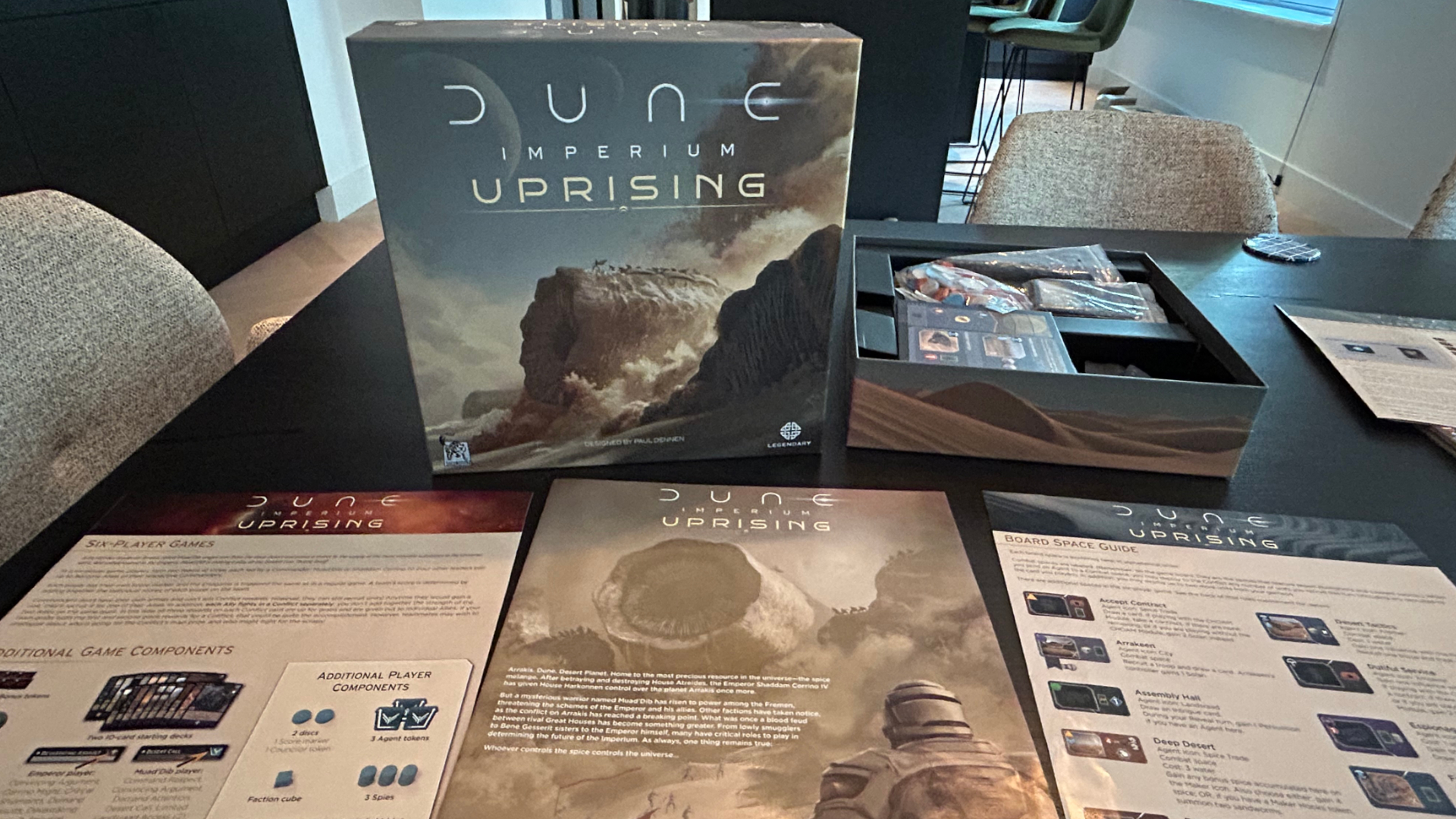
Although you can play Dune: Imperium - Bloodlines by itself, it's arguably better when mixed with Uprising or the original game itself.
As is always the case, not all of the leaders are created equal. Steersman Y’rkoon can be quite powerful if you can use his navigation cards to their maximum effect, but that’s very complicated and at the mercy of other player actions. Gaius Helen Mohiam’s ability to always go to a place she’s spying on is incredibly powerful, but only if she can get the right cards to put plenty of spies on the board. Duncan Idaho’s ability to jump into battle himself can provide an edge in conflicts, but leaving spaces unoccupied often makes it easier for other players to improve their position.
The new mechanics tend to support more build up and deck sculpting, meaning Bloodlines games often take a bit longer than ones with just Uprising. While they don’t add too much complexity, the new tiles bring enough that players might also take more time trying to assess all the options. It’s hard to blame them since Bloodlines make conflicts especially volatile and you’ll want to try to have a good read of the board before overinvesting resources.
Should you buy Dune: Imperium - Bloodlines?
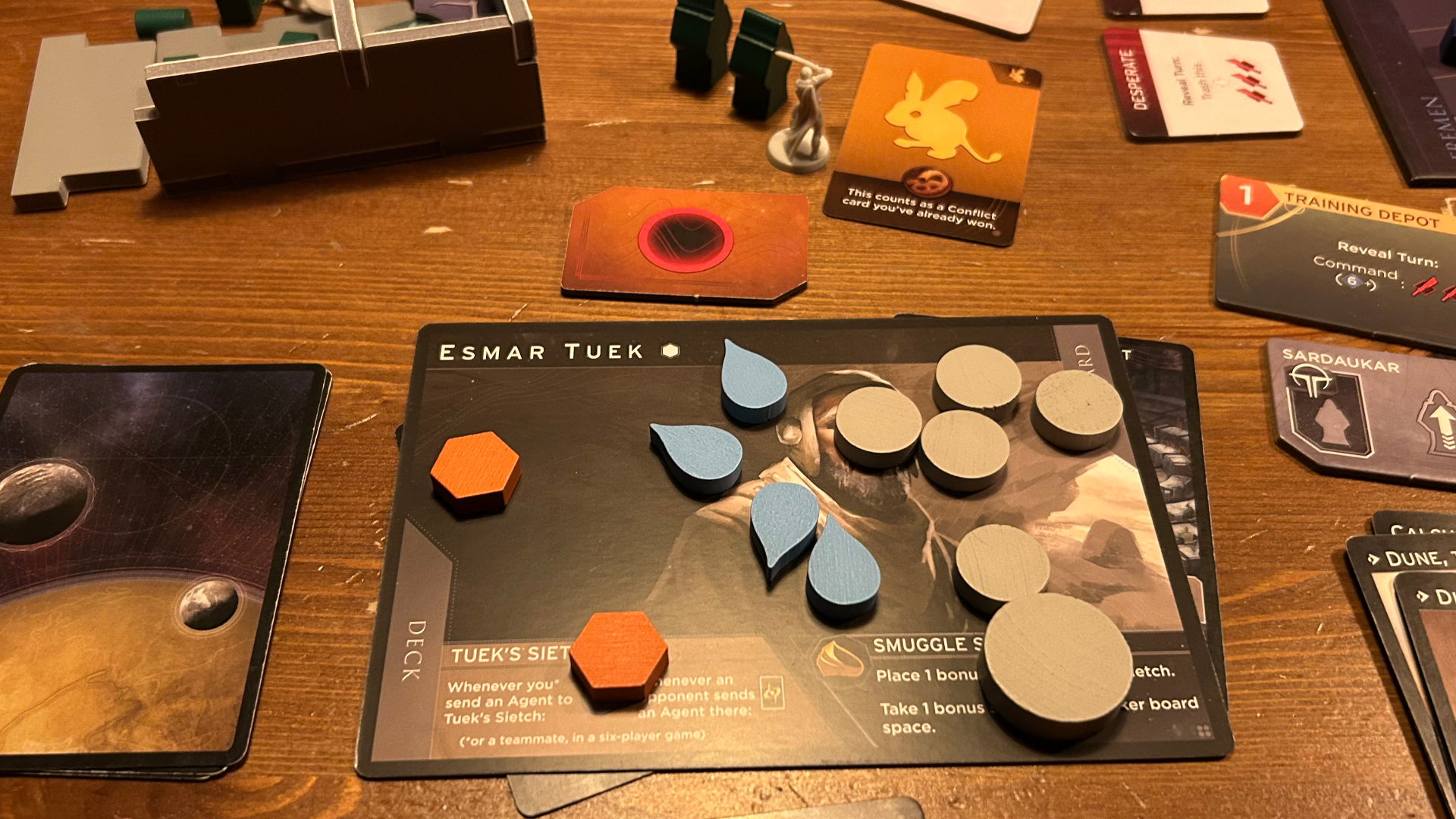
If you enjoy Dune: Imperium, you should definitely add Bloodlines to your collection and make it a default part of your games. Its new mechanics and leaders shake up the tactics for every type of playstyle, making games more dynamic. The expansion offers even more replayability to an already excellent game by providing new strategies to try shaped by the various technologies, Sardaukar abilities, and cards that appear in each game.
Ratings
Criteria | Notes | Score |
|---|---|---|
Game mechanics | Bloodlines spices up Dune: Imperium - Uprising by rewarding different play patterns and strategies, elegantly supporting actions that were underpowered and removing issues like too many spies on the board. | 5/5 |
Accessibility | The expansion doesn’t add too much complexity to the base game, but veteran players are still likely to have a significant edge. | 4/5 |
Replayability | The addition of new leaders and strategies adds even more variety to a game that already had a huge level of variance each time. | 5/5 |
Setup and pack-down | While there are a few more components to add to the base game, the expansion doesn’t meaningfully increase the time spent getting it on or off the table. | 4/5 |
Component quality | The movie-inspired card art and Sarduakar miniatures look great. | 4/5 |
Buy it if...
✅ You already love Dune: Imperium
Bloodlines strongly improves the already great Dune: Imperium - Uprising, making it even more dynamic with new strategies.
✅ You enjoy games with high replayability
The new elements only add to the unpredictability of games, meaning no two will play out the same way.
Don't buy it if...
❌ You get decision paralysis
There are lot of choices you can make in a turn and you need to be able to accept that you’ll make mistakes with limited information or even just be overlooking possible plays.
❌ You prefer short games
Dune: Imperium - Uprising doesn’t take too long for experienced players, but newer players adding in Bloodlines might get frustrated by its extended play time.
How we tested Dune: Imperium - Bloodlines
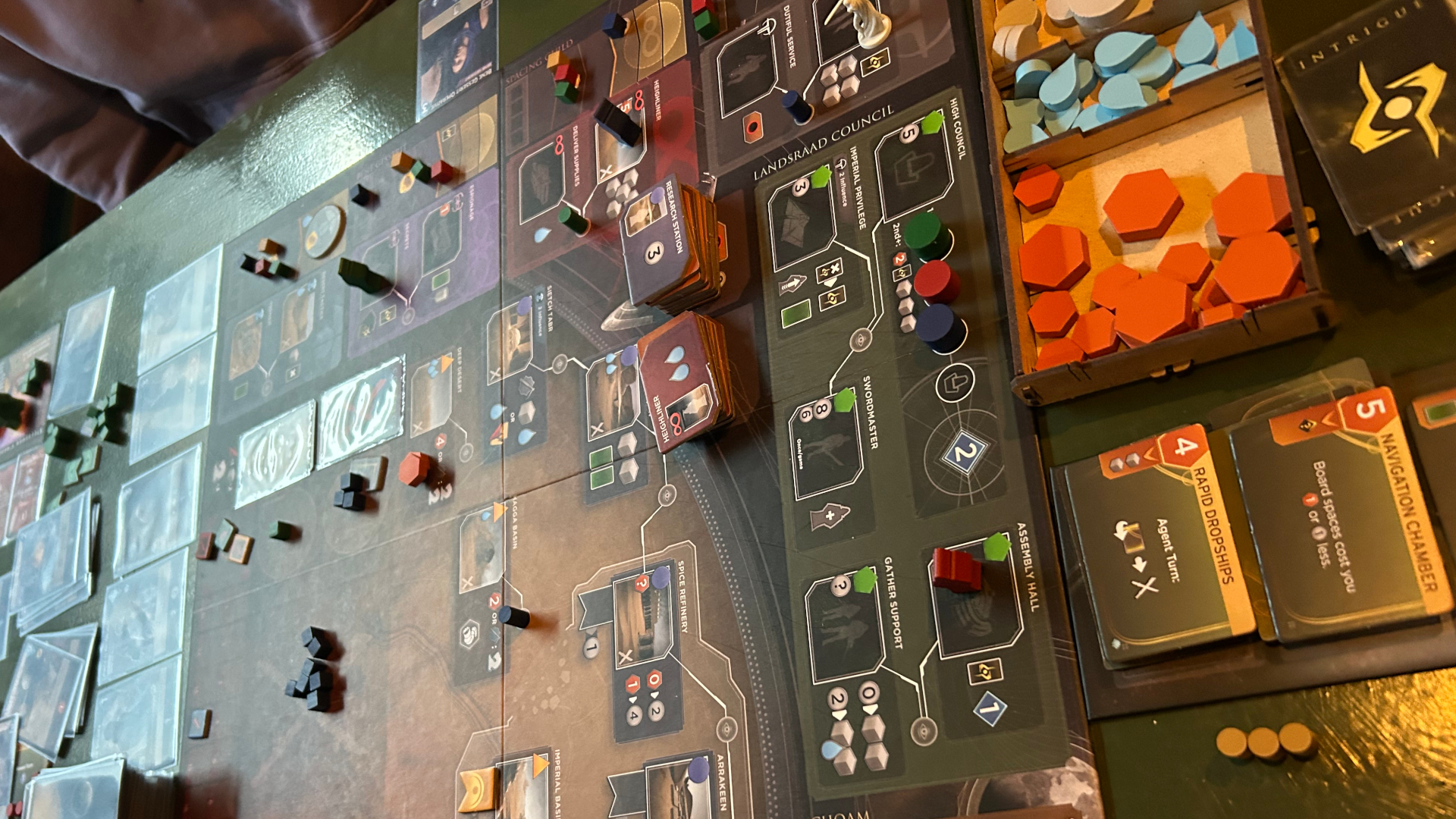
This review was conducted using a sample provided by the publisher.
Our reviewer (who has been writing about tabletop gaming for over a decade now) tried this game multiple times to get a better sense of how it works, along with adding previous expansions like Uprising to see how they interacted with Bloodlines.
To get a broader overview of our process, see this guide to how we test board games or the GamesRadar+ reviews policy.
Looking for other recommendations? Don't miss the best 2-player board games, or the best cooperative board games.

Samantha is a freelance writer that specializes in tabletop gaming. Her credits include Dicebreaker, IGN, Polygon, and The A.V. Club.
You must confirm your public display name before commenting
Please logout and then login again, you will then be prompted to enter your display name.
